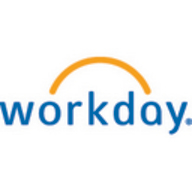

Teradata and Workday Prism Analytics compete in the data analytics and insights category. Teradata is recognized for its comprehensive features and support, while Workday Prism Analytics offers a streamlined experience for Workday users, making it superior in integration for those already in the Workday ecosystem.
Features: Teradata offers scalability, robust querying capabilities, and powerful analytics solutions suitable for large data volumes. It also features a multi-parallel processing architecture and advanced workload management. Workday Prism Analytics focuses on seamless Workday integration, providing real-time data visualization, collaboration tools, and complex data manipulation capabilities designed for HR and finance departments.
Room for Improvement: Teradata could simplify its deployment process and user interface for broader accessibility for medium-sized enterprises. A focus on reducing initial costs while maintaining performance might also be beneficial. Workday Prism Analytics could enhance its capabilities beyond the Workday ecosystem and improve data transformation flexibility. Additionally, providing more advanced analytics features outside of HR and finance could broaden its appeal.
Ease of Deployment and Customer Service: Teradata's deployment process can be complex, catering to large enterprises with sophisticated needs, but it offers comprehensive support. In contrast, Workday Prism Analytics is noted for its straightforward deployment and quicker integration for existing Workday users, minimizing disruptions in service.
Pricing and ROI: Teradata tends toward higher initial costs due to extensive customization options but provides significant ROI for large data needs. Workday Prism Analytics offers a more cost-effective option within the Workday suite, leveraging integration efficiencies and reducing operating complexities, making it financially attractive for current Workday users.
| Product | Market Share (%) |
|---|---|
| Teradata | 0.9% |
| Workday Prism Analytics | 1.3% |
| Other | 97.8% |


| Company Size | Count |
|---|---|
| Small Business | 28 |
| Midsize Enterprise | 13 |
| Large Enterprise | 52 |
Teradata is a powerful tool for handling substantial data volumes with its parallel processing architecture, supporting both cloud and on-premise environments efficiently. It offers impressive capabilities for fast query processing, data integration, and real-time reporting, making it suitable for diverse industrial applications.
Known for its robust parallel processing capabilities, Teradata effectively manages large datasets and provides adaptable deployment across cloud and on-premise setups. It enhances performance and scalability with features like advanced query tuning, workload management, and strong security. Users appreciate its ease of use and automation features which support real-time data reporting. The optimizer and intelligent partitioning help improve query speed and efficiency, while multi-temperature data management optimizes data handling.
What are the key features of Teradata?
What benefits and ROI do users look for?
In the finance, retail, and government sectors, Teradata is employed for data warehousing, business intelligence, and analytical processing. It handles vast datasets for activities like customer behavior modeling and enterprise data integration. Supporting efficient reporting and analytics, Teradata enhances data storage and processing, whether deployed on-premise or on cloud platforms.
With Workday Prism Analytics, you can bring data in at scale from any source and prepare, analyze, and securely share it with your organization. The result? You gain all the insights you need to drive better business outcomes.
We monitor all BI (Business Intelligence) Tools reviews to prevent fraudulent reviews and keep review quality high. We do not post reviews by company employees or direct competitors. We validate each review for authenticity via cross-reference with LinkedIn, and personal follow-up with the reviewer when necessary.